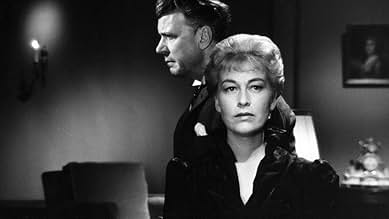Carl Theodor Dreyer marked his place forever in the film canon for his terrific masterpiece The Passion of Joan of Arc. Back in film's most primitive stages, he managed to lift it out from its limitations and give us one of the greatest performances of all-time from Maria Falconetti. 36 years later with his final film, he again studies a single woman in an intimate minimal style. It tackles a complex issue, one of universal sensitivity, with the expectations of love. There's great subdued performances of characters who can hardly bear to look at each other. Based on a play built on a handful of sequences, it ends up inherently stage-like with its 3 walls and dialogue-driven narrative. While it may struggle with pacing with a few too many scenes that don't drive the story forward, its rich backstory is compelling and plays with the imagination. In that limitation, Dreyer makes elegant use of camera movements with long takes that are constantly changing frame size, it's really magnificent to watch. What makes the film hit hard is its sudden epilogue. The majority of the film takes place over a few days and we suddenly jump 30 years into the future to study the consequences. It's a profound, if incredibly dreary film. Many lessons to take from Gertrud, both in filmmaking and in life.
8/10





















